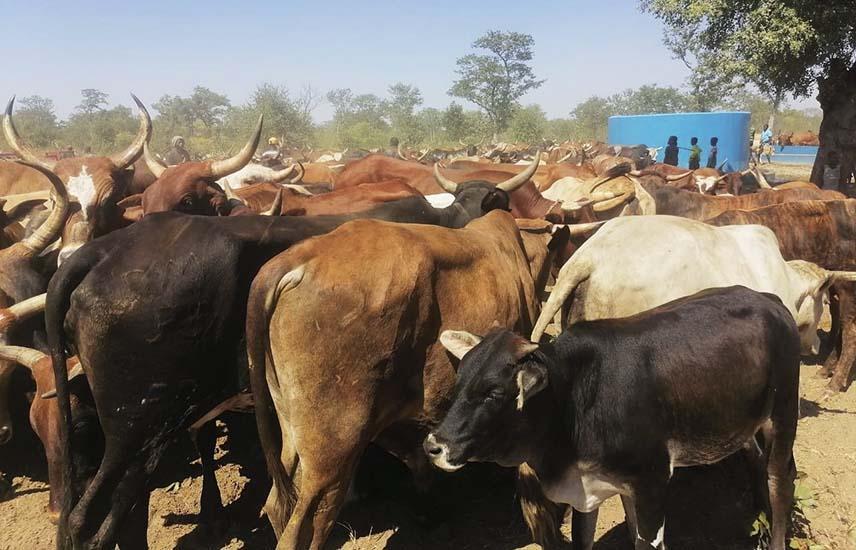Africa-Press – Angola. Traditional Cattle Breeders Located Along the Mupa/Mukolongodjo Transhumance Route, in the Municipality of Cuvelai, Cunene, will See their Animals’ Diet Improved during the Dry Season, with the Delivery of Seven Tons of Hay, by the Secretary of State for Agriculture and Livestock.
Castro Paulino Camarada said that in total, 368 cylindrical volumes of hay corresponding to seven tons were delivered, coming from the Cacanda Zootechnical Station, Namibe province, to support traditional livestock breeders on transhumance routes during the dry season, through the Strengthening Program of Resilience and Food and Nutritional Security in Angola, (FRESAN).
The Secretary of State for Agriculture stated that the populations of the province of Cunene practice monoculture, and, with the emergence of Field Schools, they are learning to diversify crops, with their own tool, with the implementation of FRESAN. The donation took place on the sidelines of the visit to the Field Schools implemented by FRESAN, in the commune of Mupa, municipality of Cuvelai, witnessed by members of the local government.
Encourage farmers
The Deputy Governor for Political and Social Affairs, Apolo Nadinaulenga, said that the product will encourage farmers to experience the Zootechnical Station. With the emergence of the FRESAN Project Field Schools, communities are learning to diversify crops, highlighting those that are resistant to drought.
According to the official, the schools are geographically well located, as part of the implementation of structural projects to combat drought in the province, along with the construction of the Kalucuve and Ndue dams, which will take water to several locations.
The European Union ambassador to Angola, Rosaria Pais, reported that they visited two completely different schools, one from the other, the first, located on the riverbank, with a small vegetable garden, where cereal experiments are carried out, and the other is quite arid and no water nearby, but adaptable to forest plants.
“FRESAN has a seed bank, and is distributing it to different Field Schools and carrying out experiments to see which ones adapt to different climates”, he stressed.
Field Schools
The president of the Camões Institute, Ana Fernandes, highlighted that this mission aims to analyse the ongoing projects, understand the state of implementation of the Field Schools, the project was visited in its initial phase, and another of plants that resist drought, the idea is to create a seed bank with a drying capacity, highlighted the good partnership with the Government of Cunene and the municipal administrations.
He praised the teams’ commitment to the process to improve people’s living conditions, adding that Camões is responsible for this partnership, with results in improving people’s conditions. The delivery took place last Tuesday in an official event.
For More News And Analysis About Angola Follow Africa-Press






